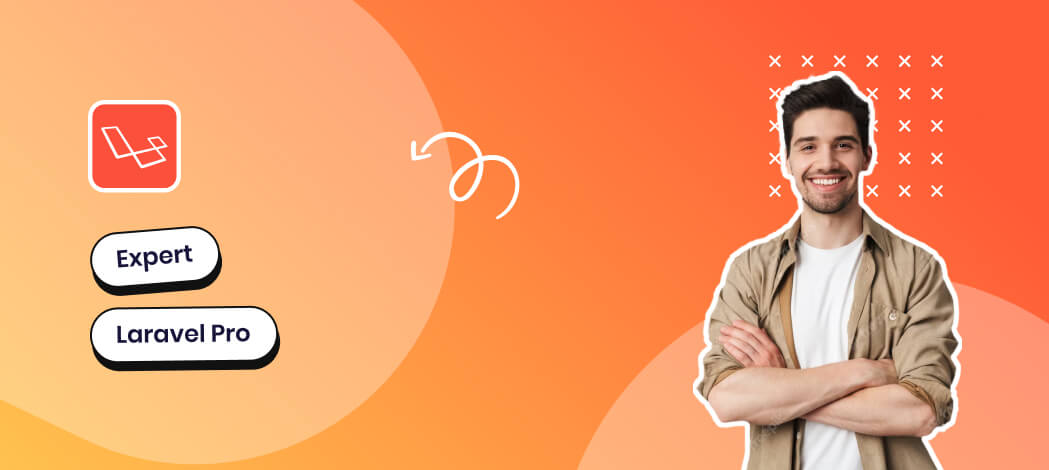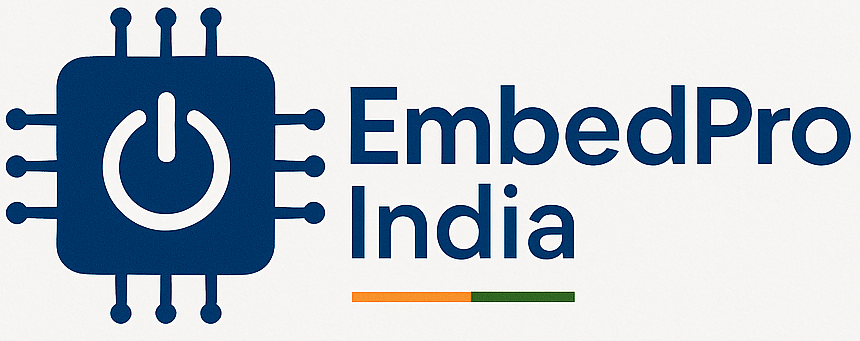
EmbedPro India – 6-Month Embedded Systems Course
Program Overview
This comprehensive 6-month Embedded Systems course is designed to bridge the gap between academic knowledge and industry demands. Participants will gain deep insights into embedded C/C++, microcontroller architectures, embedded Linux, RTOS, and IoT. The course features hands-on training with real hardware and focuses on building a strong foundation for embedded product design and development.
Program Modules
1. C | C++
Practical C
- Introduction to C
- Decision Control Structure
- Loop Control Structure (while, for, do-while)
- Case Control Structure (switch case, goto)
- Functions and Pointer
- Data Types Revisited & Storage Classes
- The C Preprocessors
- Arrays
- String
- Structures
- Unions
- Use of typedef
- The volatile qualifier
- Typecasting
- Bitwise Operators
- Enumerated Data Type
- Dangling, void, Null and wild pointers
- Dynamic Memory Allocation
- Function Pointers in C
Object Oriented Programming with C++
- C++ Introduction & What is OOP’s Concept
- Difference between C and C++
- Reference Variable
- Scope Resolution Operator
-
Features of C++ Language
- Encapsulation
- Data Abstraction
- Polymorphism
- Inheritance
- Difference between Pointer & Reference Variable
- Methods for Passing Arguments to Function
- Namespaces
- Data Types in C++
- Function Overloading & Name Mangling
- DMA (Dynamic Memory Allocation)
- Structures in C++
- Difference Between C Structure & C++ Structure
- Class and Object
- Access Specifiers in C++
- this Pointer
- friend Function
- Constructor and Destructor
2.PIC 8 Bit | ARM(STM 32)
PIC Microcontroller Training
- Program Modules:
-
Introduction
- • What is Embedded System?
- • Microprocessor vs Microcontroller
- • CISC vs RISC
- A few words about the PIC Family of Microcontrollers
-
Overview of Architecture of PIC18F4580
- Processor Core and Functional Block Diagram
- Description of Memory Organization
- Overview of ALL SFR’s and Their Basic Functionality
-
Middle Level Programming Concepts
- Cross Compiler
- Embedded C Language Implementation, Programming, & Debugging
-
On-Chip Peripherals Study, Programming, and Application
- Ports: Input/Output
- Timers & Counters
- USART
- I2C
- SPI
- A/D Converter
- Interrupts
-
External Interfaces Study, Programming and Applications
- LEDs
- Switches (Momentary Type, Toggle Type)
- Seven Segment Display
-
Protocols Study, Programming and Applications
- I2C (RTC)
- SPI (EEPROM)
- CAN
ARM (STM32) Microcontroller Training
-
ARM Processor Learning:
- Introduction
- Core Features
- Version History
- Data Flow Model
- Registers
- CPU Modes
- Memory Organization
- Interrupts
- Pipelining
- ARM Assembly Language Programming
- Addressing Modes
- ARM 7 Instruction Set (20/80% - Rule of Assembly Language)
- Usage of Keil IDE
- Demonstrating ARM ISA
- Demonstrating THUMB ISA
- ARM Embedded C Language Implementation
- Exposure to an ARM7 CPU Core-Based Microcontroller
- LPC2114 - ARM7 Based Microcontroller from Philips Semiconductors
- On-Chip System Peripherals
- Bus Structure (AMBA)
- Memory Map
- Phase Locked Loop
- VPB Divider
- Pin Connect Block
- On-Chip User Peripherals
- General Purpose I/O: Demo Using Switch & LED
- Vectored Interrupt Controller (VIC)
- External Interrupts: Demos
-
On-Chip Peripherals Study, Programming, and Application:
- Ports: Input/Output
- Timers & Counters
- USART
- I2C
- SPI
- A/D Converter
- Interrupts
-
External Interfaces Study, Programming and Applications:
- LEDs
- Switches (Momentary Type, Toggle Type)
- Seven Segment Display
-
Protocols Study, Programming and Applications:
- I2C (RTC)
- SPI (EEPROM)
- CAN
3.Linux Programming
Linux Programming
- Kernel Architecture
- Shell and Services
- System Calls
- Error Handling
- Linker and Loader
- Static Library Implementation
- Dynamic Library Implementation
- Process Management
- Interrupts / Signals
- File Management
- Inter Process Communication
- Pipe
- FIFO
- Message Queue
- Shared Memory
- Client – Server Properties
- Semaphore
- Multithreading
- Memory Management
- Virtual Memory
- Shell Scripting
4. RTOS
RTOS RT-LINUX
- Different Types of Operating Systems
- RTOS Basics – Linux as Real-Time
- RTOS Introduction (Hard Real-Time, Soft Real-Time)
Outcomes & Certification
By the end of the course, learners will:
-
Build and debug real-time embedded applications
-
Work confidently with both 8-bit and 32-bit microcontrollers
-
Develop Linux-based and IoT-connected solutions
-
Receive a certificate of completion from EmbedPro India






